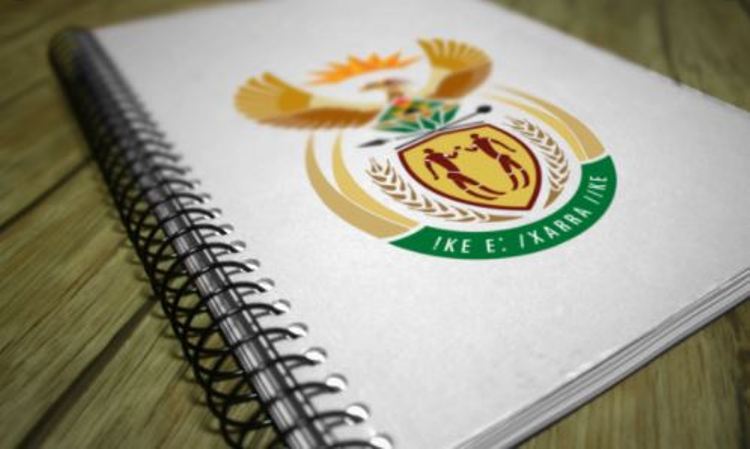Deadline Extended for Inputs on White Paper Review as CoGTA Seeks Broader Input
“The ministry recognises the importance of inclusive participation in shaping a responsive and effective system of local governance,” CoGTA said in a statement.

- Country:
- South Africa
In a bid to enhance public participation and ensure a more inclusive review process, the Minister of Cooperative Governance and Traditional Affairs (CoGTA), Velenkosini Hlabisa, has officially extended the deadline for submissions on the Review of the 1998 White Paper on Local Government (WPLG). The revised deadline is now 31 July 2025, giving stakeholders an additional month beyond the initial 30 June cutoff.
The decision comes in response to overwhelming interest from various sectors of society—including municipalities, civil society organisations, academic institutions, business chambers, and community representatives—who have requested additional time to reflect and engage meaningfully with the document.
“The ministry recognises the importance of inclusive participation in shaping a responsive and effective system of local governance,” CoGTA said in a statement. “We welcome the active engagement from all sectors of society.”
Background: Revisiting a Foundational Policy Document
The 1998 White Paper on Local Government has served as a foundational policy framework for South Africa’s post-apartheid municipal governance system. It laid the groundwork for developmental local government, emphasising community participation, integrated development planning, and equitable service delivery.
However, after nearly three decades, the Ministry believes the policy needs a comprehensive review to adapt to the changing socio-economic, political, and technological landscape. Minister Hlabisa launched the discussion document in April 2025, initiating a national consultative process.
“The review aims to inspire fresh thinking, facilitate honest reflection, and promote decisive action toward establishing a local government system that effectively serves the people of South Africa,” the department stated.
Why a Review is Necessary: Governance and Service Delivery Gaps
The call for input on the WPLG Review stems from persistent and worsening challenges in local government. According to CoGTA, these include:
-
Poor financial management and unsustainable debt in many municipalities
-
Lack of skilled personnel and persistent vacancies in key technical roles
-
Weak accountability mechanisms, particularly around procurement and budgeting
-
Infrastructure backlogs and deteriorating service delivery in water, electricity, waste, and housing
-
Limited public trust in local government institutions
-
Political instability and service protests, often driven by poor municipal performance
These challenges have led to growing consensus that the current local government model is no longer fit for purpose and requires structural reform and policy renewal.
Discussion Document Highlights: Catalysing Reform
The discussion document published by CoGTA invites comment on several key reform areas, including:
-
Clarifying municipal roles and functions within a cooperative governance system
-
Strengthening intergovernmental coordination
-
Revamping municipal financing models, including revenue collection and equitable share allocations
-
Professionalising the public service at local level through new competency frameworks
-
Enhancing community participation and transparency mechanisms
-
Leveraging innovation and technology to modernise service delivery
-
Addressing spatial inequality and the legacy of apartheid-era infrastructure
The department hopes these inputs will serve as a springboard toward a new policy framework that better reflects current realities and future needs.
How to Submit Inputs: Email, Postal, and Hand Delivery Options Available CoGTA has outlined multiple channels through which stakeholders can submit their inputs before the new 31 July 2025 deadline.
Email Submissions:
Postal Address:
The Minister of Cooperative Governance and Traditional Affairs Attention: Mr Thabiso Richard Plank (Project Manager: WPLG26 Policy Review) Private Bag X802, Pretoria, 0001
Hand Deliveries:
The Minister of Cooperative Governance and Traditional Affairs Attention: Mr Thabiso Richard Plank (Project Manager: WPLG26 Policy Review) 87 Hamilton Street, Arcadia, Pretoria, 0001
For further guidance, visit the official WPLG review page on the CoGTA website: 👉 https://www.cogta.gov.za/index.php/wplg-page
Looking Ahead: Toward a Stronger, More Accountable Local Government
Minister Hlabisa emphasised that the review process must go beyond box-ticking exercises and result in real policy shifts that restore public confidence and transform municipal performance.
“This is an opportunity for all South Africans to help reshape the future of local governance,” he said. “We must ensure that our municipalities are well-resourced, professional, and equipped to deliver on their constitutional mandates.”
As the process unfolds, the ministry has committed to transparency, open engagement, and feedback loops that ensure input from all corners of the country—particularly from rural communities, youth groups, traditional authorities, and grassroots movements.
A Call to Action for a New Local Government Era
The extension of the WPLG Review submission deadline offers a crucial window for stakeholders to influence one of the most important governance reforms in post-apartheid South Africa. As local government remains the closest sphere of government to the people, its effectiveness directly impacts everyday lives—from clean water and electricity to safety and job creation.
With wide-ranging support and strategic input, the reviewed White Paper has the potential to lay a new foundation for responsive, ethical, and inclusive local government for decades to come.










